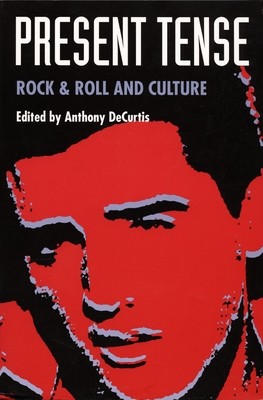
- We will send in 10–14 business days.
- Publisher: Duke University Press
- ISBN-10: 0822312654
- ISBN-13: 9780822312659
- Format: 15.4 x 22.9 x 2.4 cm, minkšti viršeliai
- Language: English
- SAVE -10% with code: EXTRA
Present Tense (e-book) (used book) | bookbook.eu
Reviews
Description
The most compelling art form to emerge from the United States in the second half of the twentieth century, rock & roll stands in an edgy relationship with its own mythology, its own musicological history and the broader culture in which it plays a part. In Present Tense, Anthony DeCurtis brings together writers from a wide variety of fields to explore how rock & roll is made, consumed, and experienced in our time.
In this collection, Greil Marcus creates a collage of words and pictures that evokes and explores Elvis Presley's grisly fate as an American cultural image, while Robert Palmer tells the gripping tale of the origins and meanings of the electric guitar. Rap music, MTV, and the issue of gender identity in the work of Bruce Springsteen all undergo thorough examination; rock & roll's complex relationship with the forces of censorship gets a remarkably fresh reading; and the mainstreaming of rock & roll in the 1980s is detailed and analyzed. And, in an interview with Laurie Anderson and an essay by Atlanta musician Jeff Calder, the artists speak for themselves.
EXTRA 10 % discount with code: EXTRA
The promotion ends in 22d.09:44:01
The discount code is valid when purchasing from 10 €. Discounts do not stack.
- Publisher: Duke University Press
- ISBN-10: 0822312654
- ISBN-13: 9780822312659
- Format: 15.4 x 22.9 x 2.4 cm, minkšti viršeliai
- Language: English English
The most compelling art form to emerge from the United States in the second half of the twentieth century, rock & roll stands in an edgy relationship with its own mythology, its own musicological history and the broader culture in which it plays a part. In Present Tense, Anthony DeCurtis brings together writers from a wide variety of fields to explore how rock & roll is made, consumed, and experienced in our time.
In this collection, Greil Marcus creates a collage of words and pictures that evokes and explores Elvis Presley's grisly fate as an American cultural image, while Robert Palmer tells the gripping tale of the origins and meanings of the electric guitar. Rap music, MTV, and the issue of gender identity in the work of Bruce Springsteen all undergo thorough examination; rock & roll's complex relationship with the forces of censorship gets a remarkably fresh reading; and the mainstreaming of rock & roll in the 1980s is detailed and analyzed. And, in an interview with Laurie Anderson and an essay by Atlanta musician Jeff Calder, the artists speak for themselves.


Reviews